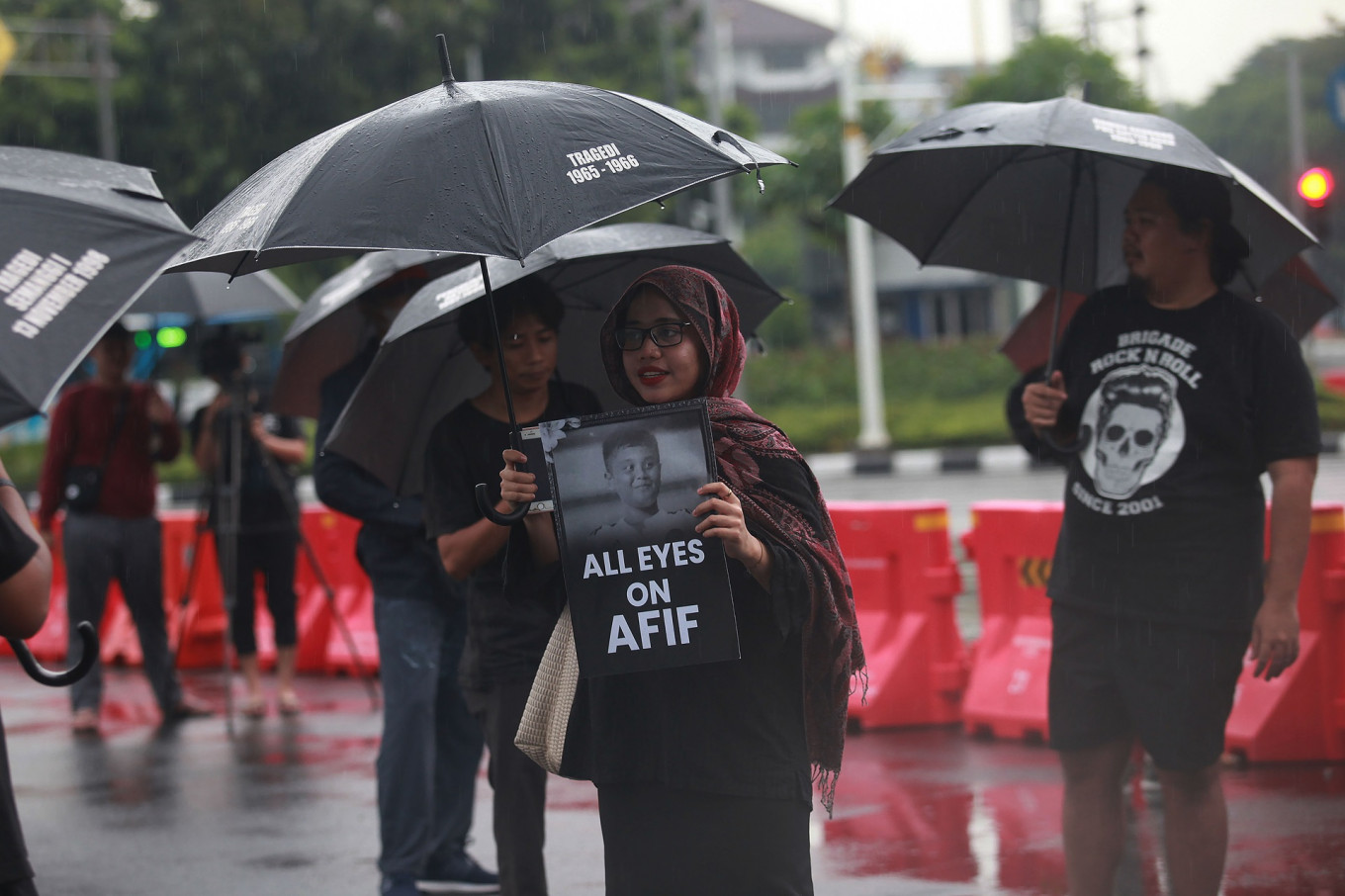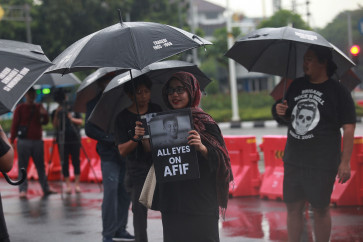Popular Reads
Top Results
Can't find what you're looking for?
View all search resultsPopular Reads
Top Results
Can't find what you're looking for?
View all search resultsDon't play with victims: The quest for true justice in Indonesia
Offering financial compensation, while necessary, is insufficient to address the core injustices if not accompanied by legal and judicial measures.
Change text size
Gift Premium Articles
to Anyone
 Kamisan (Thursday) silent protesters holds posters during a protest in Jakarta on July 4, 2024 demanding a thorough investigation into the death of a 13-year-old boy in Padang, West Sumatra, who was allegedly beaten to death by police officers after being suspected of inciting a brawl. (Antara/Reno Esnir)
Kamisan (Thursday) silent protesters holds posters during a protest in Jakarta on July 4, 2024 demanding a thorough investigation into the death of a 13-year-old boy in Padang, West Sumatra, who was allegedly beaten to death by police officers after being suspected of inciting a brawl. (Antara/Reno Esnir)
E
very Aug. 30 the world commemorates International Day of the Victims of Enforced Disappearances, a practice that has been in place since 2011. The significance of this day is to remind nations and the public of the persistent need to address the unresolved injustices that continue to haunt us.
On Aug. 2 media reports surfaced about a closed meeting between the victims and families of those who were forcibly disappeared in 1997/1998 with representatives of president-elect Prabowo Subianto (Kompas, Aug.18, 2024). This meeting was presented as an effort to align the victims’ vision with that of the incoming administration. It was further reported that a sum of Rp 1 billion (US$64,468) was offered to the victims and their families during this meeting.
On this day of reflection, we must ask ourselves: Is this political gesture truly substantial in addressing the grave human rights violations of the past?
This maneuver might not come as a surprise, because Prabowo and his faction have been actively engaging in extensive political accommodation with various political forces and opposition groups. This strategy is aimed at securing a smooth path for his administration and maintaining the solidity of his government.
The recent gesture toward the victims can be seen as an attempt to signal to the public that national reconciliation under Prabowo’s leadership is now complete. This is particularly significant given Prabowo's substantial baggage on human rights issues due to his role as chief of the Army’s Special Forces (Kopassus), which oversaw Tim Mawar (Rose team), the unit responsible for the abduction of pro-democracy activists in 1997-1998.
Therefore, the event they described as silaturahmi kebangsaan (national kinship), was a political message aimed at rehabilitating his image, telling the public that the victims' families have made peace with Prabowo. So, that approach indicates that resolving human rights violations may once again be framed as a matter of achieving harmony and stability, rather than being firmly rooted in the principles of justice and human rights.
Then, the recent distribution of money to the victims' families, as confirmed by the Indonesian Association of Families of the Disappeared (IKOHI), might appear on the surface as an attempt at victim rehabilitation or compensation. However, this act needs to be scrutinized in the broader context of transactional politics that dominate Indonesia's current political landscape.


















